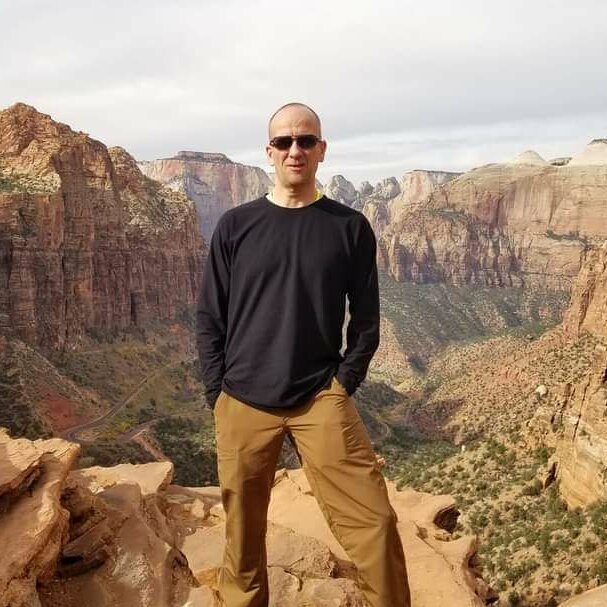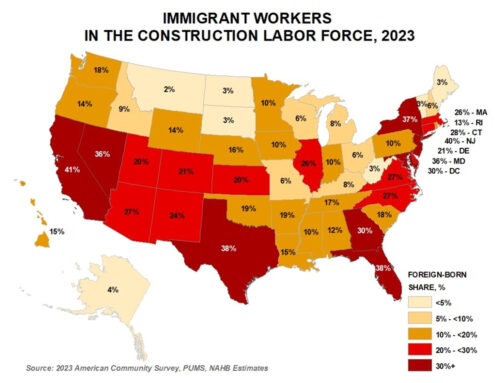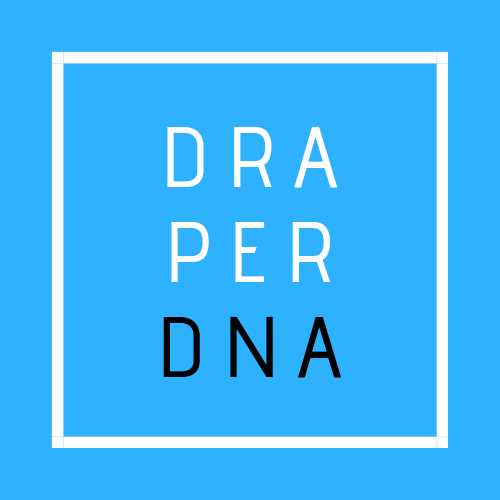There is a Difference featuring Rob Heselbarth
October 24, 2022
Experience is an absolute difference maker in most lines of work and throughout life. As we began looking at our relationships with the tremendously interesting and accomplished people we have the chance work with, we decided there was something important to be shared. In this edition of There is a Difference we talk with former magazine editor and current corporate communications leader, Rob Heselbarth about the importance and impact his experiences are making with his customers, employer, and his work. We think you will enjoy this conversation and learn the importance of experience.
I’m Rob Heselbarth, and I currently am the director of communications, which is another way of saying corporate marketing guy for Petersen Aluminum. We manufacture architectural metal products, standing seam roofing, metal wall panels. I’ve been here for eight years. Prior to this role, I was where I met you, which was a trade magazine editor. I did that for 20 years in the construction industry in various markets. I was in heating and air conditioning, and then I was in refrigeration, and then I was in mechanical contracting, which is sort of the same thing. And then I moved on to the home building and design market where I spent probably the most part of my magazine career.
You’ve hit many true pillar platforms, press editing, in-house. What’s the most significant difference in storytelling among those pillars?
Well, I think storytelling is the same. It’s the story that changes and the angle. In the media world, when I was writing for the home building magazines, the story was about the process of designing and building the home. It was everything. It was the concept to the products that were chosen, how you deal with the homeowner, and talking to the installing contractor or the builder about how they work with the homeowner and the architect. It was more about the process. Excuse me.
In this world, in the corporate communications, you’re still talking about a building, but now I’m a little more focused on the product. You still talk to the same people, the architects and the builders and the owners of the buildings. But of course, the angle’s a little different. It’s about how our products are installed and applied to buildings and why. Why was it chosen? How does it fit with the vision of the building?
Again, I get what you’re asking, how does storytelling change? But I think it’s the same. The who, what, where, when, why, and how? You got to cover all that stuff. It’s just you got to know who you’re writing for. The audience changes. In the media world, you’re talking to your audience members. In the corporate communications world, they’re your customers. It’s just a different word for the same people.
What is your favorite tool for storytelling?
One tool that I find is the same and very effective is a case study, because that’s something that you can mold your story around no matter who your audience is and what the product is or what you’re writing about. Ultimately, in the construction world, which is where I’ve spent my entire career, it’s about a building. That gives you a lot of freedom and a lot of ability to tell a story whichever way you want to. Like I was saying earlier, whether you’re talking about the process of putting that building together or the products that are going into that building. Case studies are really effective, because that’s ultimately what everyone is about every day. That’s really what the goal is. The goal is to build buildings and design buildings and install products.
In my transition from media magazine editor to the corporate communications person, it was a nice … Until you change sides, you don’t realize you’re looking at things differently. And I realize, “Oh, I can still write case studies sort of like I did as an editor and be effective with what my goal is, educating people about our products and why they’re used.” So case studies, I still lean on those a lot.
To learn and grow, you have achievements and setbacks. Tell us how each has shaped you as a professional.
Well, obviously achievements build confidence, and setbacks teach lessons. What I consider to be my achievements in my career have come from just jumping in, trusting my skills and my experience and knowing that I’ll figure it out. What I mean is advancing through the different roles that I’ve had. You can edit this, right? I kind of lost my train of thought.
Not only is it about achievements coming from trying to jumping in and trusting your skills, but also having a vision. For example, when I was first starting out my career, I had a vision of wanting to be a lead editor by the time I was 30. And so therefore, every decision I made and all my actions in my career led to that. By the time I got to be a lead editor, it was I think my third job, and I only left those other ones because I knew that the people in the lead editor role weren’t going anywhere, right? So because I had that vision of wanting to advance by a certain time, I left. Whereas if I didn’t have that goal, maybe I would’ve stayed at those jobs longer.
At the end of my media part of my career, I was listening to all the signs, looking at all the signs in my life that were kind of pointing to things. There was a lot of change going on, a lot of staff and industry issues. Ultimately, I was listening to all the signs that we’re pointing to do something different. It was just time to do that after 20 years or twenty-some years. So again, I had a vision of, “Okay, I think I can do. I can apply everything I know and all the skills I have to a corporate communications job.” And so again, I had a different vision.
Long story short, this job kind of fell into my lap, but I believe it’s because I was listening to the clues around me and taking action based on those to get where I wanted to be. So I don’t know. I think it’s important to have a vision of what you want to do with your career, or in life I guess in general. Everything you do, I would say it leads to that.
Do you miss the media world, or do you like the corporate world better?
They’re each good, but I do miss the media world. I got to interact with more different people. More different, that’s good, right? I met more people that did different things. It’s not like I’m not meeting people here, but it was different. I interacted with PR people like you a lot more, and I enjoyed that a lot. Building relationships. I mean, here it is how many years later, and here you and I are still talking. I enjoy that part.
I do miss telling stories. I don’t write as much in corporate communications. I’ll do a press release about a product or a case study on a building. I enjoy that. I’ve been here a little over eight years, and I’ve always thought I’ve wanted to write more. I just don’t have time. There’s just so many other things to do whereas as a media person that was my job. All of us editors, we’re writing stories. I miss that. Gathering the information, talking to all the players for a project, and finding out the story behind it. I miss that. Maybe someday I can get back to it in this role, find some way to do that. I guess, that’s a big part of what I miss.
Can you please explain how your experience matters to your company, to your clients, to your peers, and to you?
How my experience matters? Well, I just think it’s everything that has led me to this point in my life and my career is helping me. My journalism school training is the foundation, and newspapers and then trade magazines, and now corporate communications. It’s not rocket science, but the variety of things you can do in your life only enrich it. You learn more by doing different things. I always thought that jumping jobs … I’m not a job jumper, but I had reasons for leaving and advancing and going to different places. I always thought that was not such a good thing, but at this point in my career, I look back and I see the value of it. And I know a lot of people these days are. Rare is the person who’s been at a company for 20, 30 years anymore. Not that those people aren’t doing well and enjoying life. But again, I think the experiences I’ve had and what I’ve learned in my career is helping me, and it’s obviously helping me in my role here. I’ve enjoyed everything I’ve done to this point.
In your tenure in the home and building space, what is something that has made a difference to you as a professional?
Well, what’s made a difference is the storytelling, which was one of your first questions you asked me about. Really, what that means is relationships and interacting with either your audience or your customers. That’s really what it was all about as a media person. I had to talk to the architects and the homeowners and the installing contractors in order to tell the story, and that was everything. It wasn’t just about telling the story and moving on. I built so many relationships with so many people. Sometimes it was just the one and done story about a home, but I see those people at trade shows, and you talk and you learn. As an editor who constantly had to come up with story ideas, they all came from relationships I built with architects and home builders and designers. You build trust, and they either just gave you project ideas or maybe sometime it was even a tip off for a news kind of story.
The difference that relationships with, again, either the audience or in this job, in the corporate communications world, the customers, relationships with those people is really what it’s all about. I could sit here in my office and never leave and probably get my job done, but I don’t think I’d be doing as good a job if I wasn’t out there in the world, in the industry at trade shows and job sites learn. You learn so much from people in general, and especially in the construction market, which I have no background in, no training in. I’ve worked in it my whole life, but I’m still learning all these almost 20-some years, almost 30 years in my career.
That’s another great thing about changing jobs and even industries a little bit, going from one side of construction to another. Here, we make metal roofing and wall panels. That was a little frustrating at first to have to learn again, but it’s also rewarding because you get to learn again and master some new skills and find out what really matters when you’re applying our product on an actual building, and you’re standing on the job site and a contract is telling you, “Here’s why. This product works better because it’s designed like this, and you can install. You have a clip here.”
Anyway, it’s just really interesting. So again, getting out there, association meetings, job sites, trade shows, and just talking to people all the time. And really, what it ultimately is as I’m thinking out loud here, it’s all about asking questions. That’s where it comes from. And never be afraid to ask the dumb question, because there are none. And people, I learned, love to talk about what they know about. So you get them talking about it, and you learn.
With your knowledge and experience, how are you affected by the way mainstream media shares news and stories?
It’s been enjoyable and a little frustrating to see how media has evolved. I think it’s great where we are right now. There’s so many different ways to tell stories, traditional mediums and social media and everything. It’s been fun. For example, some people like picture books and some people just like word books. So there’s some people you can read a story, you can choose on a news website, you can choose to read the story and just the words. Or you can click on a little slideshow story, which is just words over pictures, right? There’s little music in the background. You don’t have to read a long, boring story. It’s just interesting to see all the different ways people consume media, like to consume it. You have to deliver it every way you can because there’s so many people, so many different kinds of media consumers out there. So I’ve enjoyed watching that.
Some of the things that I haven’t enjoyed so much make me feel like kind of a grumpy old man, I guess. Maybe, I am. I don’t know. For example, headline writing. I think sometimes some people, some headline writers can be lazy. So for example, something big happens in the country, a big news event, and you go to a website and the headline is, “The president was shot. What we know.” It’s like, “Well, yeah. Duh. I know you’re going to tell me what you know, because that’s why I’m coming to you. That’s your whole purpose. Put more effort into writing the headline.” I took an entire semester of headline writing. It was a headline writing class in journalism. We did other things, too. But I think, again, as the old man up on the hill looking down now, I find it a little annoying, what I perceive to be laziness in headline writing.
And also, a little grammar police kind of thing, like the conjunction IT apostrophe S. Right? It’s supposed to stand for “it is.” Well, it has evolved like media has evolved. It has evolved. It seems like it has to be “it has.” It’s just a tiny little, annoying little thing, but I see it everywhere. It makes me wonder, “Well, is that just language evolving?” Because that’s what happens over hundreds and thousands of years, language evolves. Or is it people don’t know? I don’t know. These are the weird things I think about, but I notice that kind of stuff.
Most important question. When I say Angry Birds, Bojangles, and Kellie Pickler, what stories come to mind?
Well, you come to mind. Those are all stories that occurred on various press junkets in meetings and trade shows and things. So the Kellie Pickler thing, we were on a press outing, a media outing for one of your customers, one of your clients. You took us to a restaurant. I forget if she owned the place or if it was just in her hometown or something. But the point was, you took us to off-the-road, off-the-beaten-path kind of restaurant. Really, really local. That was nice. You could have just picked a nice easy place to go to that didn’t take as much effort to find, but you made the effort to find a cool little place.
The Bojangles thing, I think it might have been that same trip. I had never heard. I’m from the Midwest. I didn’t know what Bojangles was, and I don’t think many of the other editors on the trip did, either. You made an effort, a simple effort to go to a Bojangles and introduce everybody to their fantastic biscuits. Again, it was just a little thing, but I remember it was a diversion. I think I was in the car with you, and we actually made a special trip there. You didn’t have to do that, and I thought that was good.
The Angry Birds thing. Years ago, of course, I think everybody got caught up in Angry Birds for a little bit. I honestly forget the details why it was so interesting to you, but we talked about Angry Birds and probably my frustration with it, or I don’t know what. You made a silly little poster, a little flyer kind of poking fun a little bit and having fun with me and my Angry Birds obsession. That was, again, just another example of you going the extra effort. You didn’t have to do that.
But sort of getting back to what we talked about earlier in relationships, it’s not always just about the business at hand. It’s about building a friendly relationship with professionals. To me, that was just an example. All three of those stories were examples of your professionalism and how you approach your job in the creative way, and making an effort to build relationship with people. So those are all happy memories, and I thank you for helping create them.
Thank you, Rob.
The power of storytelling and the importance of relationships are realized over time through the experiences you gather. We sincerely the opportunity to talk with those of you that have unique experiences that have made a difference in your work and life. We invite you share your unique stories with us.
Watch our interview with Rob on the Draper DNA YouTube channel –





